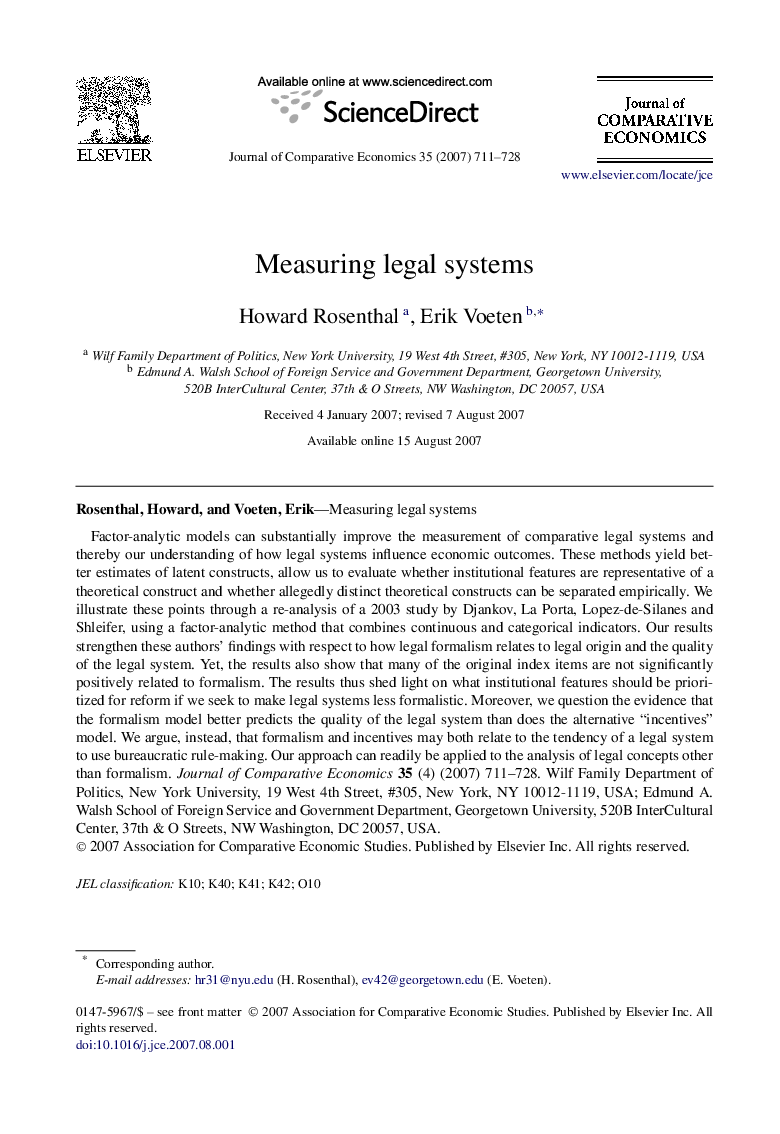| Article ID | Journal | Published Year | Pages | File Type |
|---|---|---|---|---|
| 5092699 | Journal of Comparative Economics | 2007 | 18 Pages |
Factor-analytic models can substantially improve the measurement of comparative legal systems and thereby our understanding of how legal systems influence economic outcomes. These methods yield better estimates of latent constructs, allow us to evaluate whether institutional features are representative of a theoretical construct and whether allegedly distinct theoretical constructs can be separated empirically. We illustrate these points through a re-analysis of a 2003 study by Djankov, La Porta, Lopez-de-Silanes and Shleifer, using a factor-analytic method that combines continuous and categorical indicators. Our results strengthen these authors' findings with respect to how legal formalism relates to legal origin and the quality of the legal system. Yet, the results also show that many of the original index items are not significantly positively related to formalism. The results thus shed light on what institutional features should be prioritized for reform if we seek to make legal systems less formalistic. Moreover, we question the evidence that the formalism model better predicts the quality of the legal system than does the alternative “incentives” model. We argue, instead, that formalism and incentives may both relate to the tendency of a legal system to use bureaucratic rule-making. Our approach can readily be applied to the analysis of legal concepts other than formalism. Journal of Comparative Economics 35 (4) (2007) 711-728.
